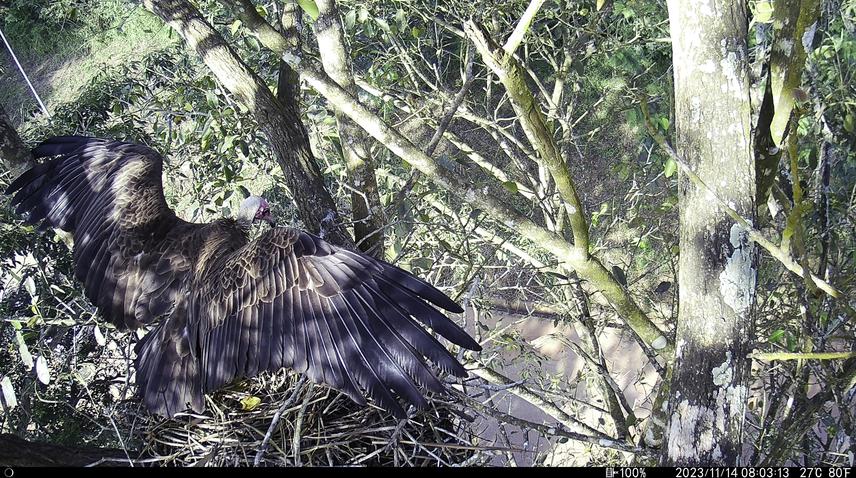Joseph Kwasi Afrifa
The population of vultures, including the critically endangered Hooded Vulture (Necrosyrtes monachus), is declining at an alarming rate, according to Birdlife International. This has become a major conservation concern for stakeholders. Local extinctions have been documented across the world, and some extant populations are only found in protected areas like national parks and game reserves. Available evidence shows vulture populations are at risk from a variety of factors, such as persecution, poisoning, hunting and trapping for body parts for believed base use in various countries throughout Africa. In addition, treats such as habitat degradation, fragmentation and loss have also contributed to the decline. Threats may also be country-specific in nature. For instance, it has been reported in Burkina Faso that the main anthropogenic threats to reproductive output are poaching of eggs, chicks’ collection of nesting materials and pruning of nest trees. Studies conducted in Ghana have also documented declines in the population of vultures which have been attributed to the issues outlined above. Although there have been studies which have investigated the breeding ecology of the species within its range, relatively little or no studies on nesting success and nest predation as part of the breeding ecology of the Hooded Vulture exist in Ghana, especially in urban areas where vulture population are relatively higher and may be subjected to other forms of anthropogenic threats that could affect the reproductive outputs of the species.

Hence conducting this study will provide the necessary data and improve on the knowledge and other possible causes of population declines aside from the well-studied factors. Preliminary studies have shown that some of the vulture population breed within the Cape Coast Metropolitan Assembly in the Central Region of Ghana, despite studies showing that a large portion of the breeding population is restricted to protected areas within the country. This study aims to provide relevant data on the breeding ecology of hooded vultures, promote citizen science initiatives to monitor the species' population and nesting sites as well as creating awareness through conservation science education campaign.